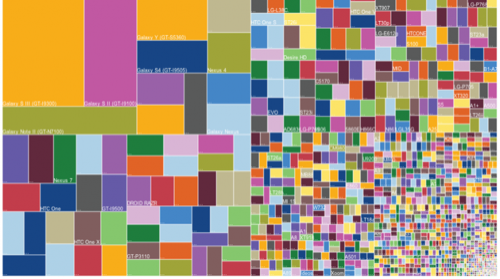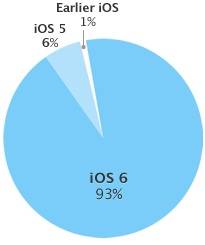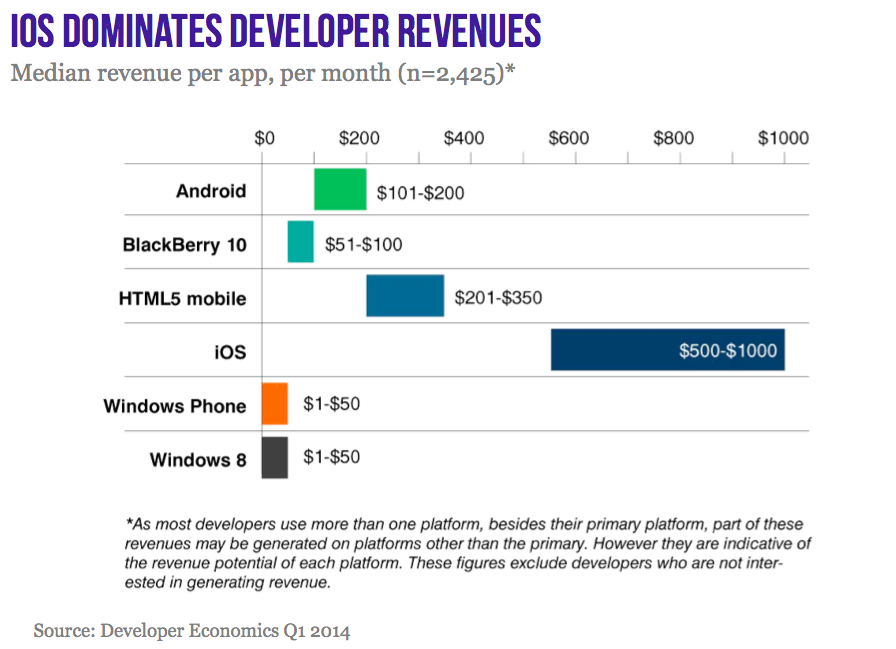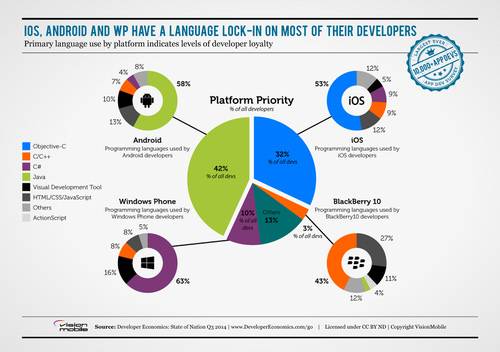Apple iOS developers spend most of their time coding. Android developers? They use the bulk of their time testing and debugging their code, according to an Evans Data report.
This isn’t because Android developers must compensate for poor code with increased QA, or that iOS developers are blasé about code quality. Rather, it’s due to Android fragmentation, which forces developers to spend more time testing disparate hardware, a problem no other mobile platform has.
Making matters worse, iOS developers make more money, on average, than their Android peers.
What’s an Android developer to do?
Different Platforms, Different Schedules
The platforms developers choose will guide where they spend the majority of their time, as an Evans Data survey of 400 mobile developers suggests.
Among those surveyed, more Android developers (36%) say testing and debugging is the most time consuming phase of development than any other group. By contrast, the largest group of iOS developers (31%) say they spend most of their time doing actual coding. For developers targeting Windows Phone, it’s the design phase.

Coders want to code, so why do they spend so much time testing and debugging with Android?
Given that there are over 1,600 devices in the Android SDK, it’s not surprising Android developers must spend an inordinate amount of time testing and debugging. That’s a heck of a lot of hardware and software configurations to QA.
And while Android co-founder Rich Miner has called Android fragmentation “an overblown issue,” it’s hard to look at this visualization noted on the Droid Report and not recognize the impact it has on developers:

For iOS developers, of course, there’s far less fragmentation, as the company has (over)stated on its developer site.

Apple’s simple pie chart isn’t a true apples-to-apples comparison with Android’s, in part because it doesn’t account for different iDevices running the various operating system versions. Still, the point is made: iOS developers deal with far less fragmentation and so get to spend more time on their code.
But wait, it gets worse.
The iOS Piggybank
To add insult to injury, iOS developers make more on average than their Android peers, as VisionMobile highlights:

Still, as The Guardian‘s Charles Arthur illustrates, while Android volumes should favor developers sprinting to that platform, the money still tends to flow toward the platform with users that spend more on apps:
[F]ollow the money—a big factor for the important developers, who can easily spend thousands writing a new app…. Distimo and analyst firm CCS Insight launched their App Vu Global service in early April 2012, tracking downloads and revenues from the app stores. Its initial findings claimed that Apple’s App Store is generating $5.4m every day in app sales for the top 200 grossing iPhone and iPad apps. For Google Play, their estimate was just $679,000 for the top 200 grossing apps on Google Play, or about 12% of Apple’s revenue.
This isn’t quite as good as it looks. As VisionMobile finds, 50% of iOS developers and 64% of Android developers are below the “app poverty line” of $500 per app per month. So it’s not as if iOS developers are driving around their Bentleys while Android developers settle for old Pintos.
But if Android development is more onerous and less profitable, why do developers still bother?
The Language Trap
For many developers, especially those in Asia-Pacific where Android is far and away the most dominant mobile platform, there’s simply no other choice. And once that choice is made, it’s hard to back out of it, given language constraints:

Yet there’s still hope.
As VisionMobile uncovers in its Developer Economics Q3 2014 report, a “surprisingly high 47% of iOS developers and 42% of Android developers are using something other than the native language on their platforms.” Not exclusively, and not necessarily as their primary development language. But “something else” keeps creeping into their apps.
Quite often, that “something other” is HTML5, which many developers use to build core functionality into their apps so that this core can be used across different platforms (e.g., both Android and iOS), then they wrap it in and extend it with native code for those different platforms.
This doesn’t give Android developers an easy out, of course, as they still need to test and debug apps that must perform on a dizzying array of hardware and software configurations. And it says nothing of the buying behaviors of Android users.
But HTML5 could help to lower their overall development costs while also making it easier to dally with iOS as they wait for Android to catch up in terms of well-heeled app buyers. That’s a strategy worth trying.
Lead image by Flickr user Steve Jurvetson









